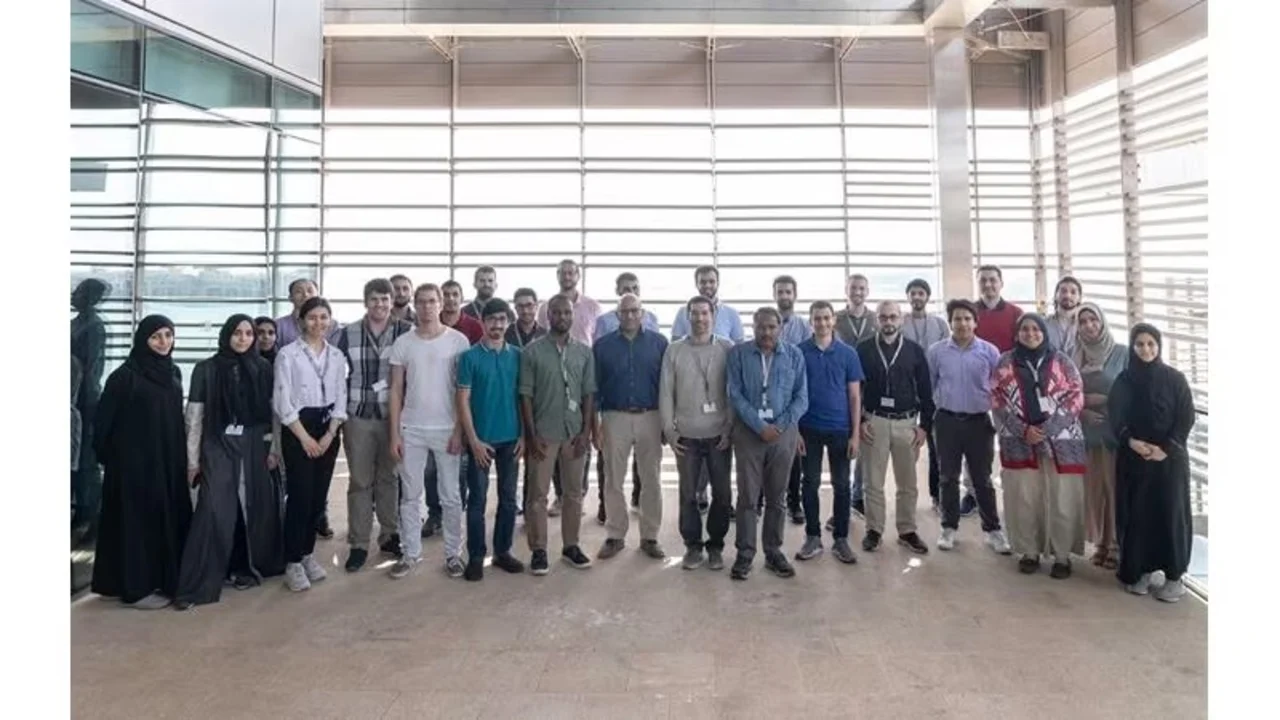
KAUST hosts International Graduate School on Control event
KAUST recently acted as a host campus for the European Embedded Control Institute's International Graduate School on Control (IGSC). The IGSC is an annual series of 27 one-week graduate modules focusing on different topics of networked and embedded control and is taught to eligible attendees at different locations worldwide. The series is co-sponsored by the Institute of Electrical and Electronics Engineers Control Systems Society and the International Federation of Automatic Control.
About
By David Murphy, KAUST News
KAUST recently acted as a host campus for the European Embedded Control Institute's International Graduate School on Control (IGSC). The IGSC is an annual series of 27 one-week graduate modules focusing on different topics of networked and embedded control and is taught to eligible attendees at different locations worldwide. The series is co-sponsored by the Institute of Electrical and Electronics Engineers Control Systems Society and the International Federation of Automatic Control.
As part of the event, KAUST Professor Jeff Shamma, director of the Center of Excellence for NEOM Research at KAUST, gave a one-week course on "Game Theory and Distributed Control" for international and in-Kingdom attendees. The course, which was spread out over five days and 21 hours, involved live lectures and in-class computational exercises.
The material for the course was developed by Shamma and his collaborator Professor Jason Marden from the University of California Santa Barbara. The on campus session had over 30 registered attendees, including in-Kingdom participants from KAUST, KACST and King Saud University and participants from nine European universities (ETH, Cambridge, TU Delft and KTH, among others).
"I was initially approached to present at IGSC in 2017 by the series' organizer, Professor Françoise Lamnabhi-Lagarrigue," Shamma explained. "The first year I offered the course was in 2018—at Prof. Lamnabhi-Lagarrigue's home institution of Centrale-Supelec—and I had enrollment from graduate students and postdocs from across Europe. It became clear at the time that KAUST and Saudi Arabia would benefit from such a course being offered locally. This year's course presented an introduction to game theory, starting from its social science origins and moving on to its role for engineered systems."
"The primary benefit to KAUST is that the course topic is of broad interest to many researchers here at KAUST," he continued. "A secondary benefit is an opportunity for visiting students and researchers off campus to visit KAUST and get exposed to both the research and life at KAUST. I believe this experience will have a positive effect on the University's global reputation, which impacts future recruiting as well as possible collaboration opportunities."
Explaining game theory
Game theory, the subject matter of the Shamma-led IGSC module, is the study of strategic interaction mathematical models between rational decision-makers. An example of game theory can be found in the mundane act of commuting to and from work every day.
"For example, with commuting, an individual's satisfaction with the path chosen depends on both the path and the paths chosen by others. That is the essence of game theory—namely that our decisions affect each other's satisfaction," Shamma noted.
The traditional domain of game theory is in the mathematical social sciences as a model of human behavior. However, in engineering situations such as smart cities—where the use of smart infrastructure by an individual ranging from autonomous vehicle fleets to household energy consumption affects the use of others—game theory is gaining renewed attention.
Read the full article